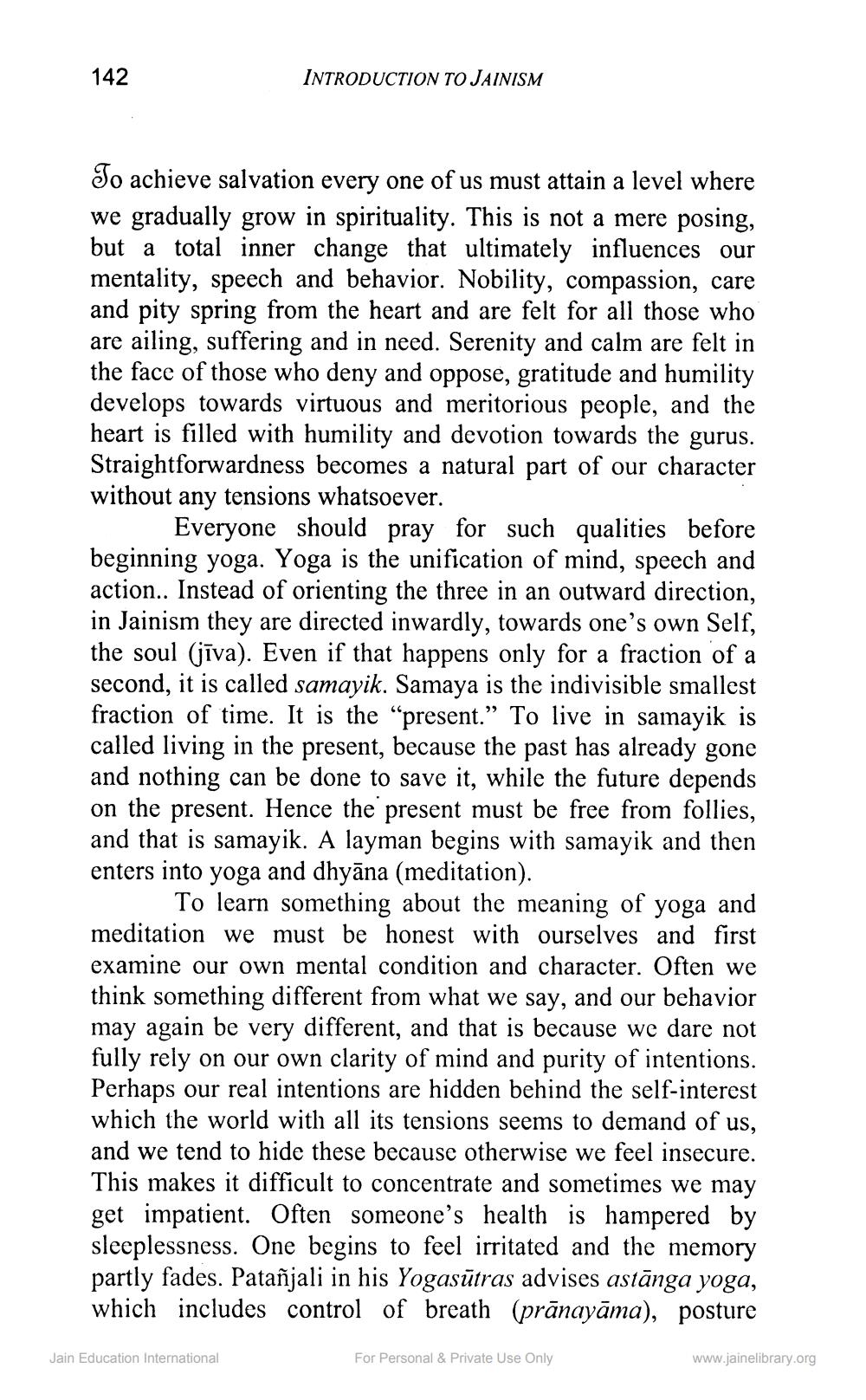________________
142
INTRODUCTION TO JAINISM
To achieve salvation every one of us must attain a level where we gradually grow in spirituality. This is not a mere posing, but a total inner change that ultimately influences our mentality, speech and behavior. Nobility, compassion, care and pity spring from the heart and are felt for all those who are ailing, suffering and in need. Serenity and calm are felt in the face of those who deny and oppose, gratitude and humility develops towards virtuous and meritorious people, and the heart is filled with humility and devotion towards the gurus. Straightforwardness becomes a natural part of our character without any tensions whatsoever.
Everyone should pray for such qualities before beginning yoga. Yoga is the unification of mind, speech and action.. Instead of orienting the three in an outward direction, in Jainism they are directed inwardly, towards one's own Self, the soul (jīva). Even if that happens only for a fraction of a second, it is called samayik. Samaya is the indivisible smallest fraction of time. It is the “present.” To live in samayik is called living in the present, because the past has already gone and nothing can be done to save it, while the future depends on the present. Hence the present must be free from follies, and that is samayik. A layman begins with samayik and then enters into yoga and dhyāna (meditation).
To learn something about the meaning of yoga and meditation we must be honest with ourselves and first examine our own mental condition and character. Often we think something different from what we say, and our behavior may again be very different, and that is because we dare not fully rely on our own clarity of mind and purity of intentions. Perhaps our real intentions are hidden behind the self-interest which the world with all its tensions seems to demand of us, and we tend to hide these because otherwise we feel insecure. This makes it difficult to concentrate and sometimes we may get impatient. Often someone's health is hampered by sleeplessness. One begins to feel irritated and the memory partly fades. Patañjali in his Yogasūtras advises astānga yoga, which includes control of breath (prānayāma), posture
Jain Education International
For Personal & Private Use Only
www.jainelibrary.org




